Where did your Birmingham education take you? Share your updates with your fellow alumni by emailing alumnicommunications@contacts.bham.ac.uk or tweet us @birminghamalum using #wearebrumalum
WIN! For your chance to win a University hoodie, tell us what graduate Joe Garrett designed. Send us your answer with your name, address and phone number by 28 February 2023. Check our Old Joe competition terms and conditions.
-
1964
Dr John Standley OAM (BSc Chemistry, 1964; PhD Chemistry, 1968; PGDip Tropical Agronomy, 1970)
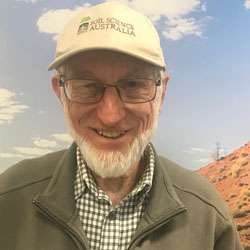 A trip to Ghana with a Commonwealth teacher inspired me to work in tropical agriculture as an agricultural chemist in north coastal, central and southern Queensland Research Centres. In 2009, I was awarded a Medal of the Order of Australia for service to agricultural science in the areas of soil and plant nutrition, and to the community. Maintaining conservation of soil and productivity are critical issues. My involvement with community organisations and regional water quality monitoring continues from Toowoomba.
A trip to Ghana with a Commonwealth teacher inspired me to work in tropical agriculture as an agricultural chemist in north coastal, central and southern Queensland Research Centres. In 2009, I was awarded a Medal of the Order of Australia for service to agricultural science in the areas of soil and plant nutrition, and to the community. Maintaining conservation of soil and productivity are critical issues. My involvement with community organisations and regional water quality monitoring continues from Toowoomba. -
1967
Odilon Talbot (MSc Production Engineering and Management Studies, 1967)
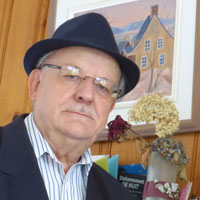 My studies at Birmingham propelled me into my first career, production and project management at Canadair, Northern Electric, Marconi and more. Specialising in project management gave me the opportunity to teach project management and technical/scientific French at the University of Québec at Montréal and I became a member of the IMBA, the International MBA Association.
My studies at Birmingham propelled me into my first career, production and project management at Canadair, Northern Electric, Marconi and more. Specialising in project management gave me the opportunity to teach project management and technical/scientific French at the University of Québec at Montréal and I became a member of the IMBA, the International MBA Association.My second career was in financial planning and services with London Life and Canada Life for individuals and organisations. I have published as an author six books in seven languages, including a collection of my paintings. I am also a member of the Commonwealth Scholarship Commission Alumni Advisory Panel, and in politics, I was elected president of my riding organisation when my party was in power and I have been present in the media.
-
1973
Paul Grainger (MA Literature, 1973)
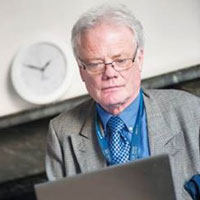 I am involved in the G20 Summit, looking at improving access to, and use of, the internet. This work gained a new urgency during the pandemic. We are looking at the internet's developing commercial role, increasing potential for harm and technological developments. Our work aims to empower users without the internet being authoritarian or manipulative. We are focusing on health, education, material gain and stronger communities. I am also involved with looking at how the digital age will affect our employment systems, the skills we will need and our social structures, in light of developments such as Artificial Intelligence.
I am involved in the G20 Summit, looking at improving access to, and use of, the internet. This work gained a new urgency during the pandemic. We are looking at the internet's developing commercial role, increasing potential for harm and technological developments. Our work aims to empower users without the internet being authoritarian or manipulative. We are focusing on health, education, material gain and stronger communities. I am also involved with looking at how the digital age will affect our employment systems, the skills we will need and our social structures, in light of developments such as Artificial Intelligence. -
1990
Vicki Hird (MSc Pest Management Systems, 1990)
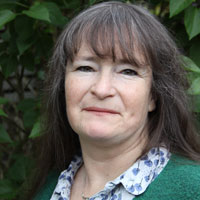 My new book Rebugging the Planet grew out of my studies at Birmingham. It highlights the remarkable things that insects (and other invertebrates) do, so that we can make small changes that enable our littlest allies to continue protecting our planet. 50 practical tips include how to plant weedkiller-free plants, make bug-friendly food choices and support good farming practices. My two boys are testing out all the home tips in our tiny garden in London, which is full of bugs.
My new book Rebugging the Planet grew out of my studies at Birmingham. It highlights the remarkable things that insects (and other invertebrates) do, so that we can make small changes that enable our littlest allies to continue protecting our planet. 50 practical tips include how to plant weedkiller-free plants, make bug-friendly food choices and support good farming practices. My two boys are testing out all the home tips in our tiny garden in London, which is full of bugs.As well as being a major bug lover (or officially, a Fellow of the Royal Entomological Society), I worked on environment, food and farming and justice issues for 30 years. I founded Sustain, the alliance for better food and farming, and I am an expert consultant for NGOs and institutions, including working for the Royal Society for the Protection of Birds, World Animal Protection International, Greenpeace International, and the Sustainable Development Commission, and worked with Friends of the Earth and War on Want. I've published numerous reports, blogs and articles, including an investigation into what ensures our food is safe to eat. The Birmingham MSc has driven my whole career path as an environmental campaigner, strategist, lobbyist and writer.
Photo by Tim Rice.
-
1992
Tom Little (BSc Sport and Exercise Science, 1992)
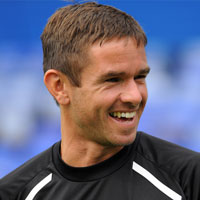 I have worked as a coach in professional sport for more than 20 years, and I have noticed how hard even top-flight athletes find it to implement nutrition and training advice. Season after season, the athletes I was supporting struggled to put the guidance into practice in the real world – and they were really motivated to do it for their careers. So how are the rest of us supposed to do it?
I have worked as a coach in professional sport for more than 20 years, and I have noticed how hard even top-flight athletes find it to implement nutrition and training advice. Season after season, the athletes I was supporting struggled to put the guidance into practice in the real world – and they were really motivated to do it for their careers. So how are the rest of us supposed to do it?To help people cut through the complex, unfounded conflicting and impractical advice we see all over the internet, I invented a colour coding system to provide an intuitive way for people to understand the benefits of food. Now even my young son can tell me: "that one makes you healthy and that one can help you run faster". Many of us are working on one or more of three goals that easy recipes and simple training can help with: staying healthy, changing our body shape and/or maximising our physical performance.
The colour-fit system is based on the latest peer-reviewed, evidence-based science I learned to evaluate at Birmingham and is used by many of the world's best-loved teams, including Manchester United, Arsenal, Chelsea, the Welsh Rugby Union, Saracens, the Melbourne Demons, and the Sri Lankan cricket team, plus many motorsport, triathlon and combat athlete champions. To help the general public in their nutrition and fitness goals, I published The Colour-Fit Method in 2022, which was an Amazon bestseller.
-
1993
Caroline Crocker (MSc Medical Microbiology, 1993)
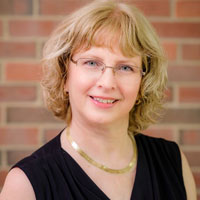 My mother, Meta Evenbly, found her life totally changed at age five when World War II began. We have co-written a new book about what a wartime childhood was like as the daughter of a Dutch postman and his German wife. We hope the book will highlight the impact that deprivation, intolerance and violence have on children everywhere.
My mother, Meta Evenbly, found her life totally changed at age five when World War II began. We have co-written a new book about what a wartime childhood was like as the daughter of a Dutch postman and his German wife. We hope the book will highlight the impact that deprivation, intolerance and violence have on children everywhere.The book details how Meta's childhood was haunted by Nazi soldiers and starvation gradually left her so weak that she did not care if she died. After the war ended, poverty, prejudice and PTSD continued to dog her every step, and Meta found herself unable to pursue her dream of becoming a physician. This is the story of how she found the hope and courage needed to work towards those goals that were still possible for her. Read more and/or purchase Brave Face: The Inspiring WWII Memoir of a Dutch/German Child.
I just retired from working as a biology professor in Northern Virginia so that I can focus full time on writing. My husband Richard and I have four grown children, eight wonderful grandchildren and a bulldog who snores very loudly.
-
2012
Sam Lear (BA History, 2012)
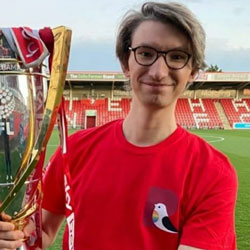 As a lifelong fan of Cheltenham Town Football Club, I've always believed football is for everyone. I recently launched Proud Robins – the club's official LGBTQ+ supporters' network. This welcoming space for fans, allies, family and friends enables us to campaign against all forms of discrimination and inequality; particularly homophobia, biphobia and transphobia in football. The network collaborates with the club, authorities and other networks to tackle incidents promptly and raise awareness.
As a lifelong fan of Cheltenham Town Football Club, I've always believed football is for everyone. I recently launched Proud Robins – the club's official LGBTQ+ supporters' network. This welcoming space for fans, allies, family and friends enables us to campaign against all forms of discrimination and inequality; particularly homophobia, biphobia and transphobia in football. The network collaborates with the club, authorities and other networks to tackle incidents promptly and raise awareness. -
2016
Francesca Wheatley (BA Social Policy, 2016)
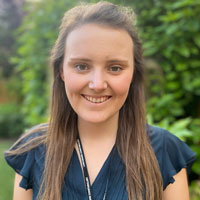 I joined Lancashire Constabulary through a graduate programme in 2016. I hadn't fully considered what my long-term career plans would be, but the emphasis on diversity and inclusion opened my eyes to the idea that, as a (relatively small) woman, I could still be a successful police officer. I began by working with school children to educate them on the dangers of cybercrime, exploring ways the government could implement national policies to prevent and reduce child sexual exploitation and responding to 999 calls.
I joined Lancashire Constabulary through a graduate programme in 2016. I hadn't fully considered what my long-term career plans would be, but the emphasis on diversity and inclusion opened my eyes to the idea that, as a (relatively small) woman, I could still be a successful police officer. I began by working with school children to educate them on the dangers of cybercrime, exploring ways the government could implement national policies to prevent and reduce child sexual exploitation and responding to 999 calls.In 2020 I became a detective constable, dealing with crimes from high risk missing persons to murder investigations. The work involves collating witness statements, finding CCTV/phone evidence and attending post-mortems. One of the most dramatic cases I have dealt with involved a group of offenders attempting to rob a cannabis farm belonging to an organised crime group, which involved a number of dangerous weapons. I helped secure an array of charges against eight offenders ranging from drugs and firearms offences to perverting the course of justice. I have just begun a new role as a Child Protection Detective; supporting victims, preventing repeat offences and making real positive differences to people's lives.
-
2017
Mike McKiernan (MBChB Medicine, 1966; MPhil History of Art, 2007)
After retiring from a career in occupational medicine, I came back to Birmingham to study a Masters degree at the Barber Institute of Fine Art. I have recently brought these two passions together to publish a book on how occupations are depicted in the visual arts.
Art and Occupation explores the evolving relationship between people and work, and its relevance to working life today. What dignity is found in different kinds of work and in what conditions? How do we balance work with protecting health? How can occupational health professionals respond to the current challenges? The paintings, etchings, engravings, photographs, sculptures and ceramics I have collated show how artists have expressed their interpretation of workplace dynamics over the past two thousand years.
A copy of this unique and beautifully illustrated book has been donated to the Barber Fine Art Library at the Barber Institute and is available at Troubador Publishing with all proceeds going to the Society of Occupational Medicine, a registered charity.
-
2018
Helen Waite (BA Philosophy, Religion and Ethics, 2018)
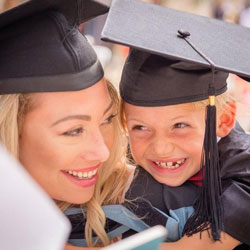 Fast fashion brings the latest trends to the high street quickly, but often creates poor quality, disposable clothing. After graduating, I started the UP Creative Community to repurpose unwanted fabric items. We teach basic sewing skills for repairs, and provide bedding and clothing to people experiencing homelessness, redundancy and domestic violence. We are tackling fast fashion at the source by advising commercial brands, educators and the third sector. Two Birmingham interns work with us; I wanted to help the next generation as I learned so much from my internship.
Fast fashion brings the latest trends to the high street quickly, but often creates poor quality, disposable clothing. After graduating, I started the UP Creative Community to repurpose unwanted fabric items. We teach basic sewing skills for repairs, and provide bedding and clothing to people experiencing homelessness, redundancy and domestic violence. We are tackling fast fashion at the source by advising commercial brands, educators and the third sector. Two Birmingham interns work with us; I wanted to help the next generation as I learned so much from my internship. -
2019
Daniela Gissara (MSc International Development, 2019)
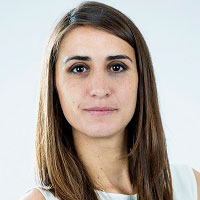 In September, I was invited to talk to the United Nations about inclusive education for children with disabilities, from the teachers' perspective. As a proud alumna of the University of Birmingham, I am pleased to share the presentation I gave to the United Nations Transforming Education Summit in New York, bringing the voice of children with disabilities, their families and their teachers to the global stage.
In September, I was invited to talk to the United Nations about inclusive education for children with disabilities, from the teachers' perspective. As a proud alumna of the University of Birmingham, I am pleased to share the presentation I gave to the United Nations Transforming Education Summit in New York, bringing the voice of children with disabilities, their families and their teachers to the global stage.I work with the Perkins School for the Blind, providing onsite and online training for teachers and schools around the world, and helping develop the curriculum, school leadership and community engagement initiatives. We know that support for teachers to help students with disabilities varies hugely across the world, so I appealed to the UN to do more to ensure that a high-quality education is accessible to every child, that takes account of their individual needs. Sending all the best to my fellow teachers and education specialists at the University of Birmingham!
-
2022
Joe Garrett (MEng Mechanical Engineering, 2022)
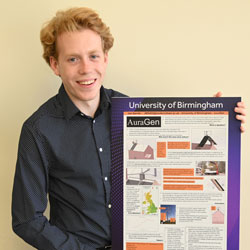 We are used to seeing solar panels on our homes, but when I was working on rooftops with my dad as a teenager, I encountered a lot more wind than sunshine up there! The idea for a roof-mounted wind turbine stuck with me throughout my studies and the University supported me. My AuraGen home wind turbine design can deliver more power per unit than many solar panels and can generate renewable energy overnight.
We are used to seeing solar panels on our homes, but when I was working on rooftops with my dad as a teenager, I encountered a lot more wind than sunshine up there! The idea for a roof-mounted wind turbine stuck with me throughout my studies and the University supported me. My AuraGen home wind turbine design can deliver more power per unit than many solar panels and can generate renewable energy overnight.